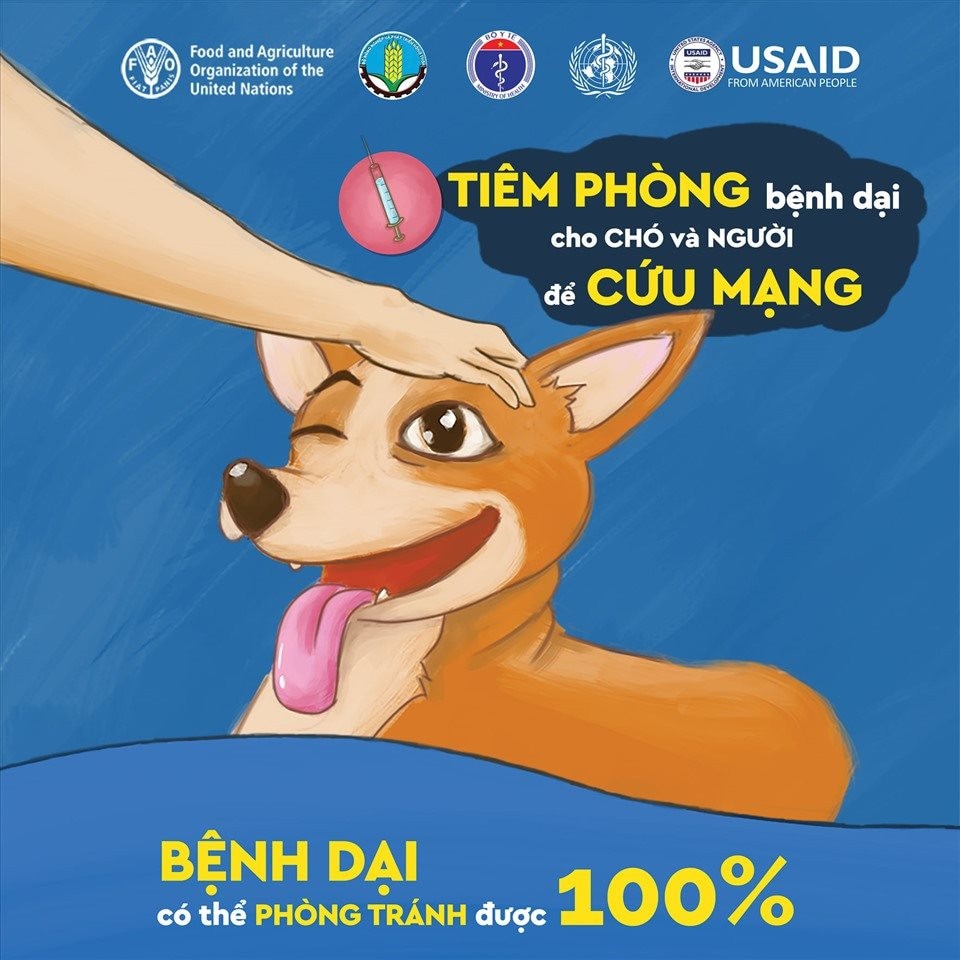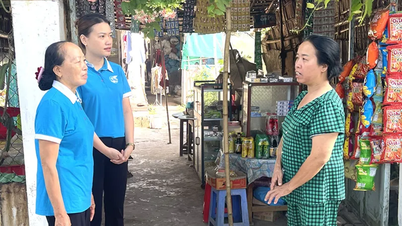On the occasion of World Rabies Day 2023 (September 28), the World Health Organization in Vietnam (WHO), the Food and Agriculture Organization of the United Nations in Vietnam (FAO), the United States Agency for International Development (USAID) and the United States Centers for Disease Control and Prevention (CDC) continue to commit to working with Vietnamese ministries, sectors and stakeholders towards eliminating rabies deaths by 2030 and supporting the development of essential policies and mechanisms to reduce rabies mortality.
Delegates attend the rally in response to World Rabies Day 2022 held in Ben Tre province. Photo: PV/Vietnam+
This year’s World Rabies Day is themed “All for One, One Health for All.” The event is also an opportunity to remind stakeholders that the fight against rabies is not a one-day event but must be carried out in a sustainable manner to achieve the ultimate goal of reducing the number of deaths due to rabies.
Despite some progress over the past 10 years, Vietnam still records between 70 and 100 rabies deaths each year. According to statistics from the Ministry of Health , in the first 8 months of 2023, there were 61 deaths in 26 provinces and cities, higher than the same period in 2022. Although the number of rabies deaths in some provinces has decreased significantly, this index still increased in 20 provinces in the 5-year period from 2017 to 2021, compared to the period from 2011 to 2016.
Dr Angela Pratt, WHO Representative in Viet Nam, stressed the need for a strong commitment and targeting of priority areas to eliminate rabies deaths by 2030; including ensuring equitable access to critical health services, including pre- and post-exposure prophylaxis for underserved communities. This will help save lives.

Propaganda photos of international organizations and the Vietnamese Ministry of Health about rabies. Photo from the Internet.
Dr Pratt also stressed that close coordination between veterinary, human health and other sectors is essential to ensure effective and efficient management of prevention and control programs.
Dr. Rémi Nono Womdim, FAO Representative in Viet Nam, said that the One Health agenda is increasingly receiving high-level international political support as a sustainable solution to combat threats, including rabies. Dog vaccination is the single most cost-effective intervention to protect people from rabies. By working together using a One Health approach to increase rabies vaccination coverage in animals to at least 70%, we can prevent rabies transmission to humans and accelerate progress towards the goal of “Zero human deaths from rabies by 2030” in Viet Nam.
Dr. Lindsay Kim, Director of the Global Health Security Program, US Centers for Disease Control and Prevention (CDC) in Vietnam, emphasized the importance of the One Health approach and assured CDC's support in rabies prevention efforts.
“We strongly support the One Health approach, which connects people, animals, and the environment. U.S. CDC is proud to support Vietnam in adopting this approach to eliminate rabies deaths by 2030. We are working with the Ministry of Agriculture and Rural Development of Vietnam, specifically the Department of Animal Health, and other partners to develop National Guidelines for Rabies Surveillance using a One Health approach,” said Dr. Lindsay Kim.
“Rabies prevention and control requires multi-sectoral collaboration, especially with the veterinary and public health systems, as well as active engagement with communities to raise awareness about rabies and vaccinate dogs. Campaigns to gain strong political commitment and mobilize financial resources for rabies prevention are also important to eliminate human deaths from rabies,” said Dr. Myat Htoo Razak, Senior Global Health Security Advisor, USAID Vietnam.
Vietnam currently records between 70 and 100 deaths each year from rabies. According to Dr Angela Pratt, WHO Representative in Vietnam, Vietnam has made great progress in preventing and treating human rabies but needs to target priority areas to completely eliminate the disease by 2030.
The Government of Vietnam is committed to achieving the goal of eliminating human deaths from rabies by 2030 by reforming the National Rabies Control and Elimination Programme 2022-2030. The Ministry of Health, the Ministry of Agriculture and Rural Development and local authorities, with support from the aforementioned international partners, have been working together to implement the National Rabies Control Programme to reduce human deaths from rabies, a key goal and challenge for many countries in recent decades. Representatives of international organizations emphasized the need to encourage the Government of Vietnam, especially at the local level, to prioritize and increase resources for dog management, dog vaccination and the provision of post-exposure prophylaxis for people bitten by dogs.
FAO, WHO, USAID and US CDC committed to maintaining technical support for the Government of Vietnam and strengthening cooperation to end human deaths from rabies, towards the goal of zero deaths from rabies by 2030./.
Thu Hang



![[Photo] Ho Chi Minh City holds funeral for former President Tran Duc Luong](https://vphoto.vietnam.vn/thumb/1200x675/vietnam/resource/IMAGE/2025/5/24/9c1858ebd3d04170b6cef2e6bcb2019e)

![[Photo] Party and State leaders visit former President Tran Duc Luong](https://vphoto.vietnam.vn/thumb/1200x675/vietnam/resource/IMAGE/2025/5/24/960db9b19102400e8df68d5a6caadcf6)






























































































Comment (0)